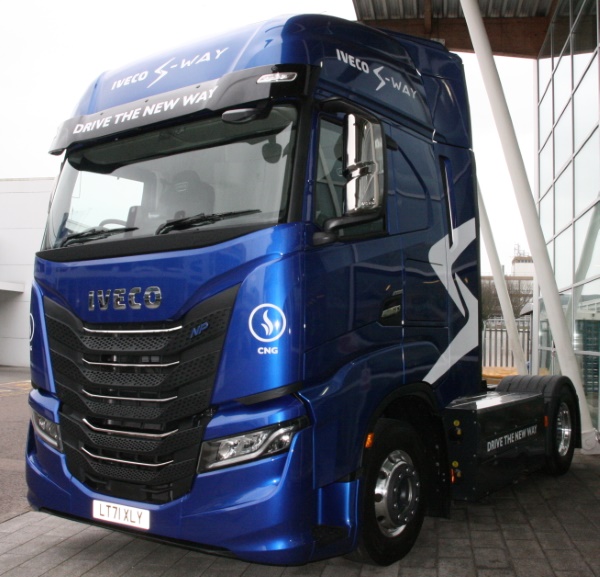Iveco maps out route to diesel-free future
 Jorge Asensio, medium and heavy products manager and alternative fuels business lead at Iveco, has laid out the newly-independent manufacturer’s complex path to net zero road transport.
Jorge Asensio, medium and heavy products manager and alternative fuels business lead at Iveco, has laid out the newly-independent manufacturer’s complex path to net zero road transport.
“The agenda is continuously changing,” he told British journalists. “And it is sometimes driven by a political agenda.
“The greatest challenge is a cleaner, green world. We have used fossil fuels for a century and diesel for the last 50 years. It’s an exceptionally efficient fuel. But burning one litre of diesel produces 2.63 kg of CO2, and that’s a chemical fact!
“We are told we must achieve net zero as soon as possible – that’s easy to say, but challenging to do. It’s a marathon, not a sprint, and a single solution will not emerge for decades to come.
“All truck manufacturers are on the same journey. Trucks must do a job and make money, they must have range and reliability. No one has a 100 per cent net zero vehicle that can do everything today. The larger and heavier the vehicle, the further it is from net zero, and there is no single solution that we will see by 2035 – 2040.
“Creating the necessary infrastructure is even greater challenge, and it is still some way away. Early adopters face high costs and our industry as a whole is focussed on today…it leaves the long term until the last minute!
“Achieving zero emissions is a marathon, but it will be followed by a sprint with practical, reliable 100 per cent emissions-free solution as the finish line.
“But we can’t wait for zero emissions, we must look for low emissions solutions to start the transition today. Gas is a proven low-emissions alternative to diesel, and bio-gas is the gateway to the start of the low-emissions journey.
“There is a biomethane network up and running, and expanding, and gas trucks suffer little weight penalty. There is a two or three year payback on the front-end costs from reduced running costs.
“The first part of the marathon is biomethane which is a mainstream alternative to diesel and its use will peak in 2030, after that the second part is battery electric and the third part is hydrogen fuel cell.
“Until then, biomethane is our focus for today and tomorrow.”
Jorge Asensio said Iveco would focus on hydrogen fuel cells as the long-term solution. He rejected the idea that Iveco could use its expertise in gas engines to develop hydrogen combustion engines as Cummins, DAF and JCB are doing. “We won’t burn hydrogen in vehicles, a fuel cell is more efficient,” he said.
“But biomethane is likely to remain a fuel for some applications that can’t go down the electric or hydrogen route. We have some customers currently using 100 per cent biothane in their trucks already, but most biomethane is injected into the gas grid. We are expecting demand for ‘pure’ biomethane to ramp up, but the gas grid will become vital in the distribution of hydrogen.”











